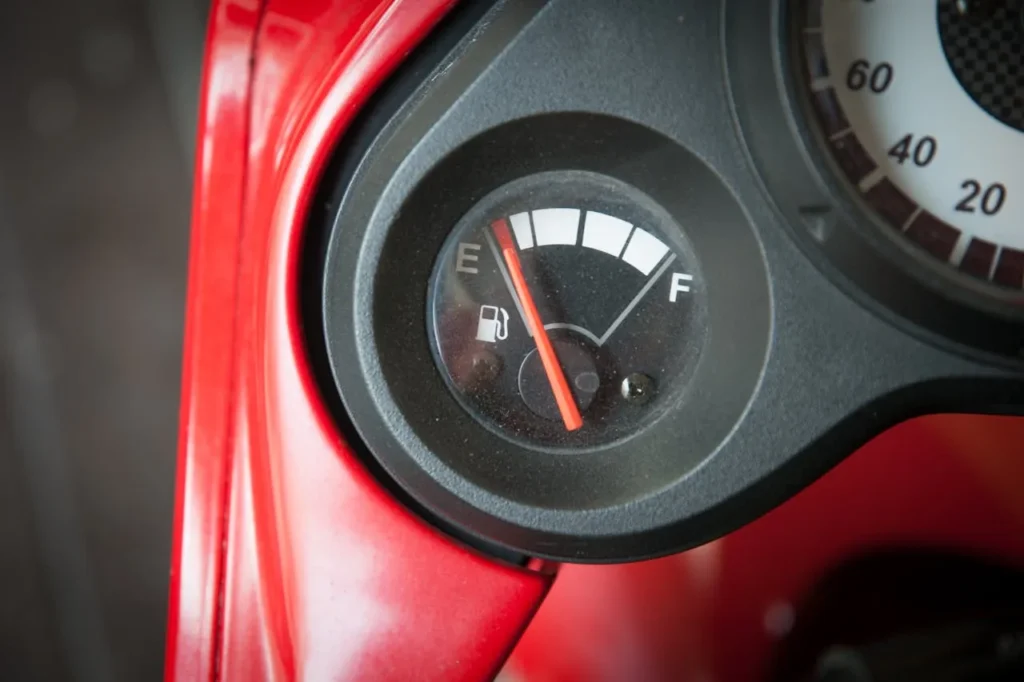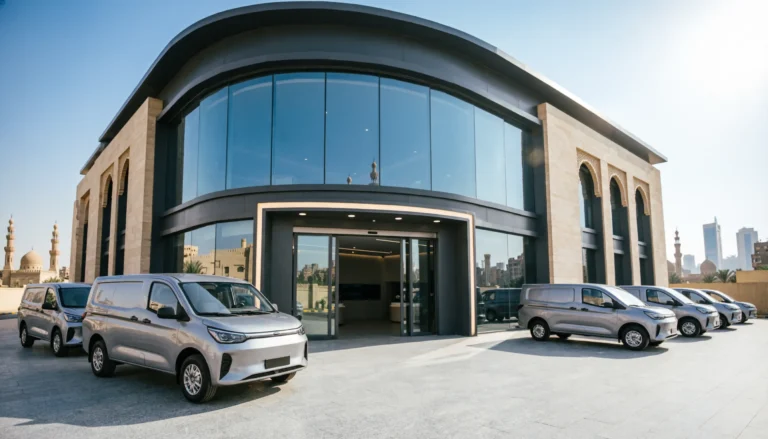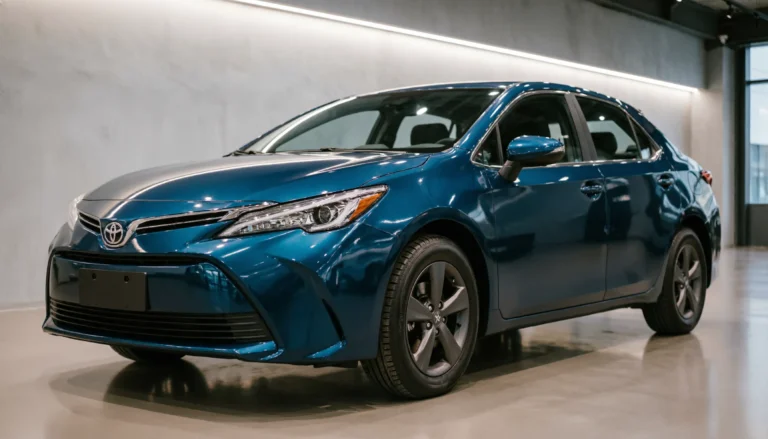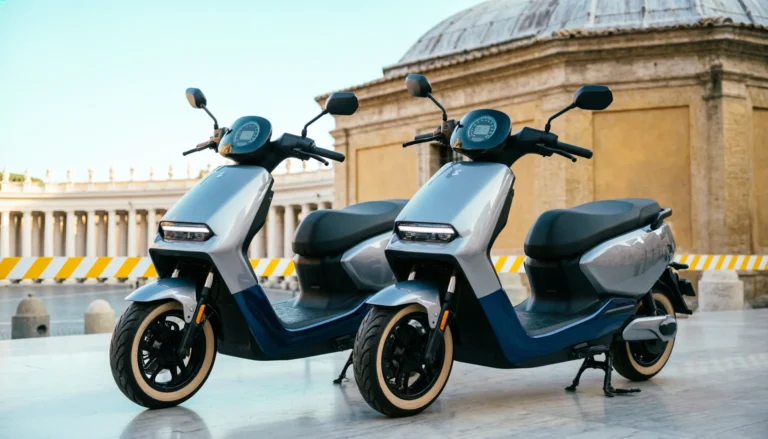
Ampere and Stratus Materials Partner to Advance Cobalt-Free Cathode Technology for Renault Group’s Next-Generation EVs
Ampere, the electric vehicle (EV) and software-focused subsidiary of Renault Group, has announced a significant collaboration with Stratus Materials Inc., a pioneering U.S.-based developer of high-energy, cobalt-free LXMO™ cathode active materials (CAM) for advanced lithium-ion batteries. Through a newly signed Joint Development Agreement (JDA), the two companies will jointly explore the performance and potential of Stratus’s cutting-edge LXMO™ materials in Renault Group’s future EV lineup.
This partnership marks a major milestone in Renault Group’s ongoing commitment to innovation and sustainability within its electrification strategy. The initiative underscores Ampere’s mission to reduce material dependency, lower production costs, and enhance the performance and safety of its next-generation electric vehicles.
A Strategic Step Toward a More Sustainable Battery Future
The JDA between Ampere and Stratus Materials represents the first step in evaluating how LXMO™ cobalt-free cathode materials can be integrated into the Renault Group’s battery ecosystem. The project aims to validate the high energy performance and long-term durability of LXMO™ when used in full-scale EV battery cells.
Testing will be conducted at Ampere’s Battery Cell Innovation Lab in Lardy, France, a state-of-the-art facility inaugurated to accelerate the development and industrialization of advanced battery technologies. This laboratory enables Ampere engineers and partners to assess new materials and chemistries under real-world conditions while supporting Renault Group’s broader goal of technological independence and competitiveness in the EV market.
Ampere’s R&D team will analyze how Stratus’s LXMO™ performs in key areas such as energy density, cycle life, thermal stability, safety, and cost-efficiency—factors that collectively determine the viability of next-generation EV batteries. The evaluation process is expected to offer critical insights that may guide Renault’s battery sourcing and design strategies in the years ahead.
LXMO™: A Next-Generation Cathode Material
Stratus Materials’ proprietary LXMO™ cathode active material offers a unique combination of high performance and sustainability. Unlike conventional cathode chemistries such as nickel-manganese-cobalt (NMC) or lithium-iron-phosphate (LFP), LXMO™ eliminates the need for cobalt—a metal that is both costly and subject to volatile supply chains.
LXMO™-based batteries are engineered to deliver energy densities comparable to or even exceeding NMC-based cells, while maintaining the low cost, enhanced safety, and robust thermal tolerance characteristic of LFP batteries. This balance of attributes provides a compelling proposition for automakers seeking to expand EV adoption without compromising range, affordability, or safety.
From a systems perspective, the improved abuse tolerance of LXMO™ materials, coupled with their high intrinsic energy density, can enable battery pack-level energy densities up to twice that of NMC or LFP packs. This technological leap has the potential to yield EVs with significantly longer range, lighter battery systems, and reduced overall production costs. For Ampere, such advancements translate into stronger product differentiation and a competitive edge in the accelerating global EV market.
Ampere’s Three-Phase Battery Strategy
The adoption of cobalt-free materials like LXMO™ represents the third strategic phase in Ampere’s evolving battery roadmap.
- Phase 1: NMC Chemistry (Nickel-Manganese-Cobalt) – Initially chosen for its high energy density and established industrial base, NMC technology underpins many of Renault’s current EV offerings, balancing performance with range efficiency.
- Phase 2: LFP Chemistry (Lithium-Iron-Phosphate) – Beginning in 2026, LFP batteries will power select Renault models, offering greater affordability, durability, and safety—making them ideal for mass-market vehicles.
- Phase 3: Cobalt-Free Cathodes (LXMO™ and Beyond) – The partnership with Stratus Materials marks the entry into this third phase, focused on achieving the next frontier in battery technology—high-energy, cost-efficient, and fully sustainable solutions that reduce reliance on critical raw materials.
Ampere’s multi-step strategy reflects its vision of creating a diversified and future-ready battery portfolio, capable of adapting to different vehicle segments and consumer needs while minimizing environmental and ethical concerns tied to material sourcing.
Executive Insights: Driving Innovation Through Partnership
Commenting on the collaboration, Nicolas Racquet, Vice President of Vehicle & Powertrain Engineering at Ampere, emphasized the strategic importance of evaluating new materials beyond conventional chemistries:
Ampere is looking closely at high-energy cobalt-free materials because of their potential advantages compared to incumbent cathode materials. Stratus’s LXMO™ CAMs have gained Ampere’s attention because of their unique and compelling combination of performance, cost, safety, and cycle life.”

His statement highlights the convergence of technical performance and economic feasibility—a crucial factor for mass-scale EV adoption. Ampere’s approach reflects a growing industry shift toward flexible material strategies that prioritize sustainability and resilience against supply chain volatility.
Jay Whitacre, CEO of Stratus Materials, expressed optimism about the collaboration’s potential impact on the automotive sector:
We are thrilled to have LXMO™ selected by Ampere and Renault Group as a candidate for deployment into their future vehicle portfolio. Our progress to date with Ampere has been strong, and we look forward to delivering on the ongoing JDA and moving together toward full vehicle deployments.”
Whitacre’s remarks underscore Stratus’s commitment to accelerating the transition toward safer, more affordable, and environmentally responsible EV battery technologies.
The Case for Cobalt-Free Batteries
Cobalt, long used in NMC and NCA (nickel-cobalt-aluminum) battery chemistries, provides structural stability and performance benefits—but at a significant cost to sustainability, ethics, and supply chain stability. The global cobalt supply is highly concentrated, with much of it sourced from regions facing labor and environmental challenges.
As the EV market continues to expand, the demand for cobalt has surged, raising concerns about price volatility, supply bottlenecks, and environmental impact. By transitioning to cobalt-free alternatives, manufacturers like Ampere aim to achieve supply chain resilience, lower production costs, and improved lifecycle sustainability.
LXMO™’s chemistry eliminates these dependencies while maintaining—or even surpassing—the performance benchmarks of cobalt-containing materials. This shift not only benefits environmental and social governance (ESG) performance but also strengthens Renault Group’s ability to meet evolving European Union regulations on battery sustainability and recycling.
Ampere’s Innovation Ecosystem in France
Ampere’s Battery Cell Innovation Lab in Lardy serves as a cornerstone for Renault Group’s battery R&D ecosystem. Designed to accelerate material validation, prototype testing, and industrial readiness, the lab enables Ampere to independently test and optimize advanced chemistries like LXMO™.
The Lardy facility integrates with Renault’s broader network of innovation hubs, including partnerships with Verkor for high-performance battery cells and The Software Republic, a collaborative ecosystem focused on software-defined vehicle development. By incorporating Stratus’s materials into its testing framework, Ampere strengthens its capacity to explore multiple technological pathways—solidifying its position at the cutting edge of European EV innovation.
Toward a Greener and More Competitive EV Landscape
The collaboration between Ampere and Stratus Materials reflects a growing industry consensus: the future of EV batteries lies in materials innovation that can simultaneously improve energy efficiency, reduce costs, and mitigate environmental impact.
For Renault Group, this partnership aligns with its carbon neutrality goals and supports its ambition to become a leader in the European EV market. Ampere’s focus on integrating cobalt-free chemistries not only addresses sustainability imperatives but also enhances competitiveness in a sector where battery cost and performance are decisive factors.
The transition toward cobalt-free batteries represents more than a materials upgrade—it’s a fundamental step toward democratizing electric mobility, making long-range, safe, and affordable EVs accessible to a broader customer base.
Positioning Ampere as an Industry Leader
As global automakers race to secure next-generation battery technologies, Ampere’s proactive approach places it among the front-runners in EV innovation. By partnering with Stratus Materials, Ampere is expanding its technological horizon and reinforcing its leadership in sustainable mobility.
The company’s long-term strategy—spanning from software-defined vehicle development to next-gen battery research—demonstrates a deep understanding of how integration across the value chain drives competitive advantage. Through collaborations like this, Ampere is not only enhancing Renault’s EV capabilities but also contributing to the broader transformation of the European automotive landscape.
Ampere’s joint development agreement with Stratus Materials marks a pivotal advancement in Renault Group’s electrification journey. By evaluating Stratus’s high-energy, cobalt-free LXMO™ cathode technology, Ampere is setting the stage for the next wave of efficient, safe, and sustainable electric vehicles.
The partnership reflects a shared vision: building the batteries of tomorrow—powerful enough to compete with today’s leading chemistries, affordable enough for widespread adoption, and sustainable enough for a cleaner planet.
As testing progresses at the Lardy Battery Cell Innovation Lab, Ampere continues to lead by example—pioneering technologies that redefine performance standards while ensuring environmental responsibility remains at the core of automotive innovation.
Source Link: https://www.businesswire.com/







